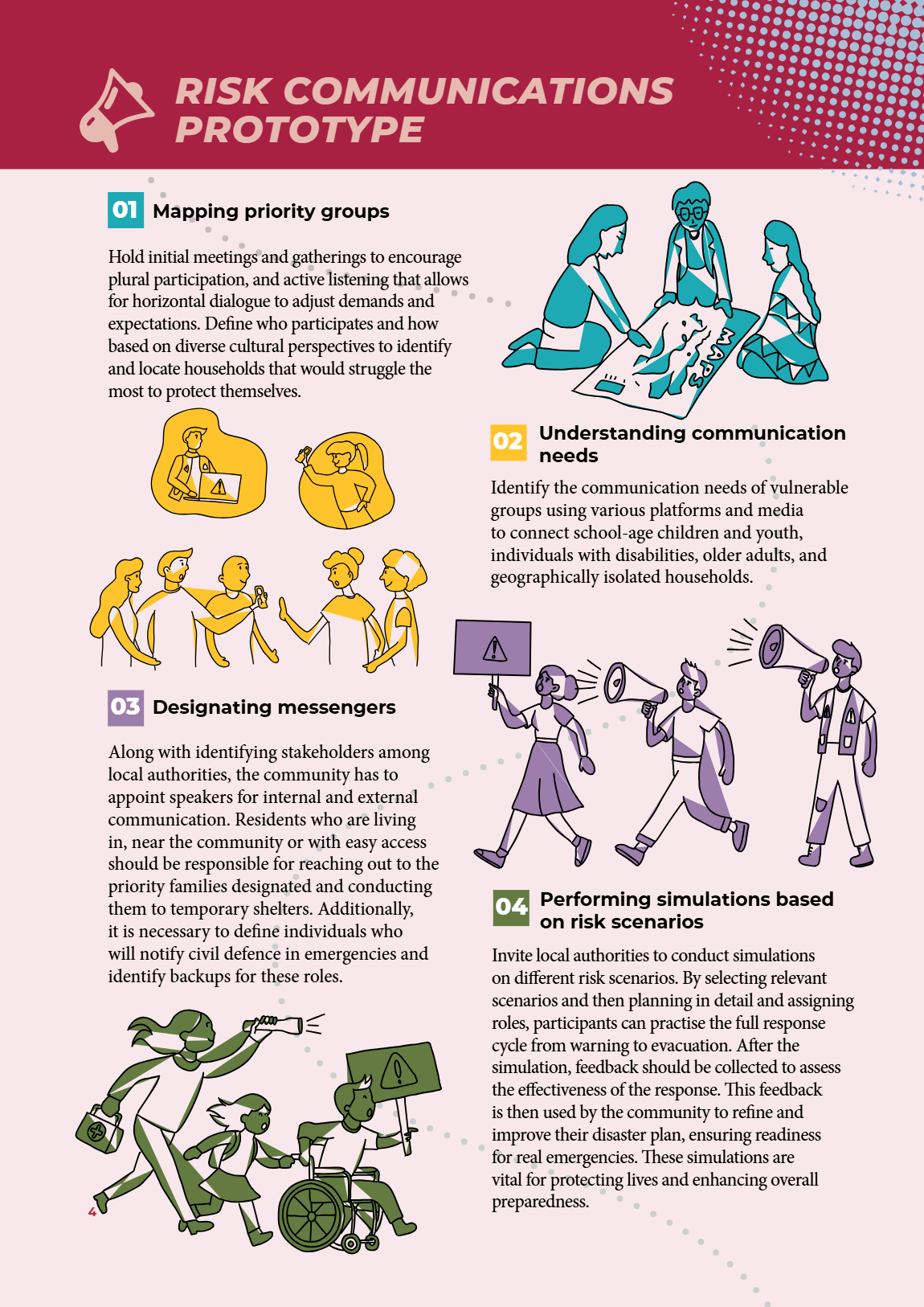Enhancing People-Centred Early Warning Systems (PCEWS) in Traditional Coastal Communities of Brazil: An Intersectional Approach to Inclusive Risk Communication

About this Paper:
This study investigates barriers to accessing and acting on Early Warning Systems (EWS) among traditional coastal communities in southeastern Brazil, focusing on Quilombola and Caiçara groups. These communities face unique challenges, including delayed information, unreliable communication technologies, and misinformation, exacerbated by socio-economic and geographic vulnerabilities.
Using a mixed-methods approach, the research engaged community members through workshops, storytelling sessions, and demographic analysis to identify key barriers and opportunities for improvement. Findings revealed that individuals with disabilities, older adults, and geographically isolated households struggle most with receiving and acting on warnings.
The study proposes a four-step, community-driven prototype to enhance risk communication, emphasizing the importance of mapping priority groups, building trust, designating community messengers, and conducting risk scenario simulations. The recommendations aim to strengthen inclusive, accessible, and actionable EWS that address the diverse needs of marginalized communities.
Explore the executive summary or full paper to learn more.

Authors and Collaborators:
- Principal Investigator: Rafael Damasceno Pereira, University College Cork, Ireland
- Supervision: Allan Yu Iwama, University of São Paulo, Brazil; Luciana R. Londe, National Centre for Monitoring and Early Warning of Natural Disasters (CEMADEN), Brazil
- Research Team: Danilo Pereira Sato, University of São Paulo; Flavia N. Dutra Ribeiro, University of São Paulo; Janaina Cassiano dos Santos, CEMADEN; Leda Nard, CEMADEN; Luiza Castro, University of São Paulo; Miguel Ángel Trejo-Rangel, Maynooth University, Ireland; Samara Andrade, University of São Paulo.

This research was funded with UK International Development from the UK government. It was part of a multi-country research initiative led by the Global Disaster Preparedness Center of the American Red Cross. Access all final publications here.
